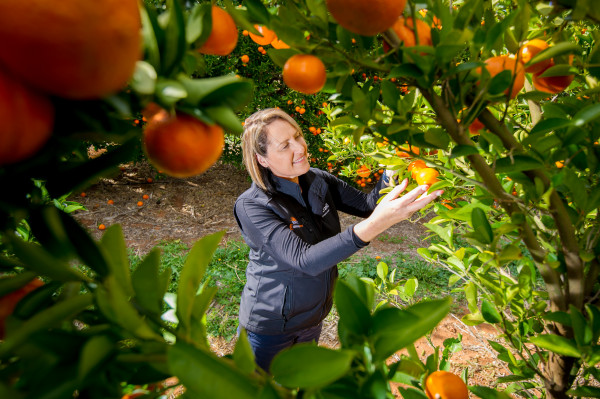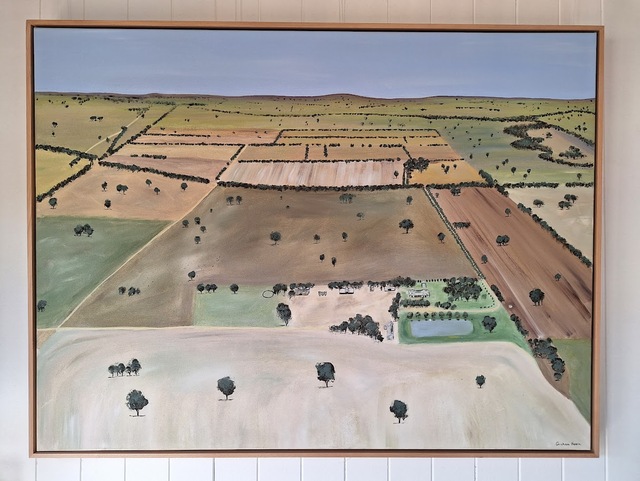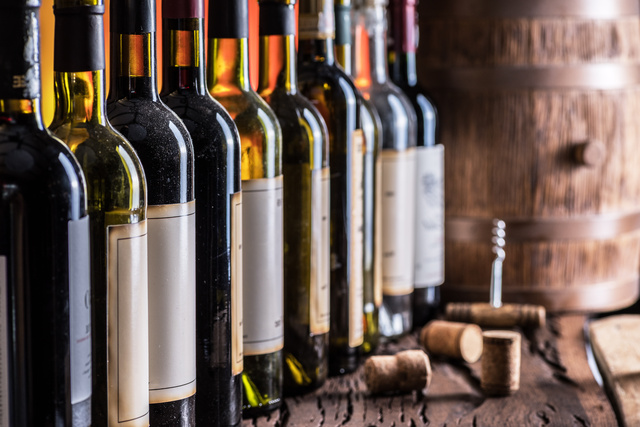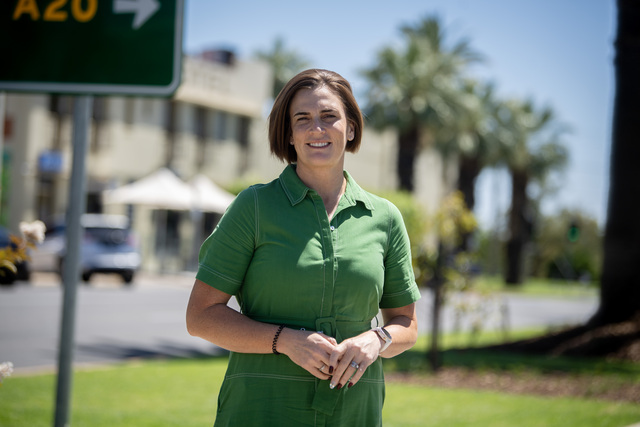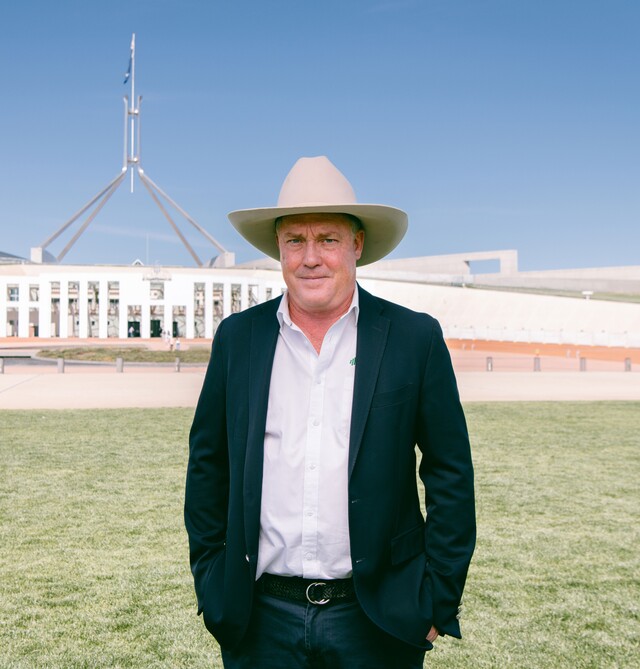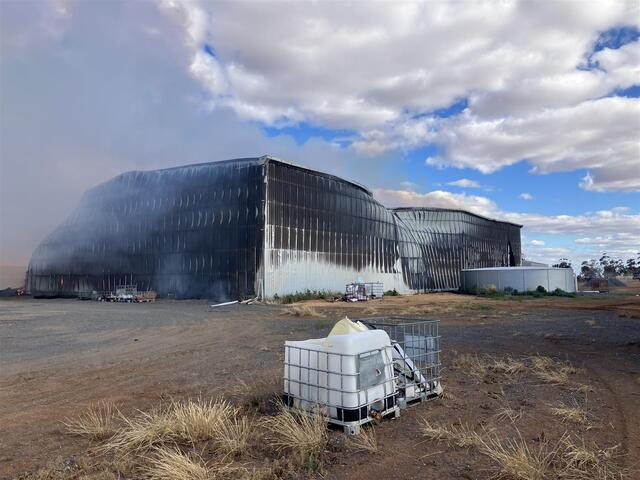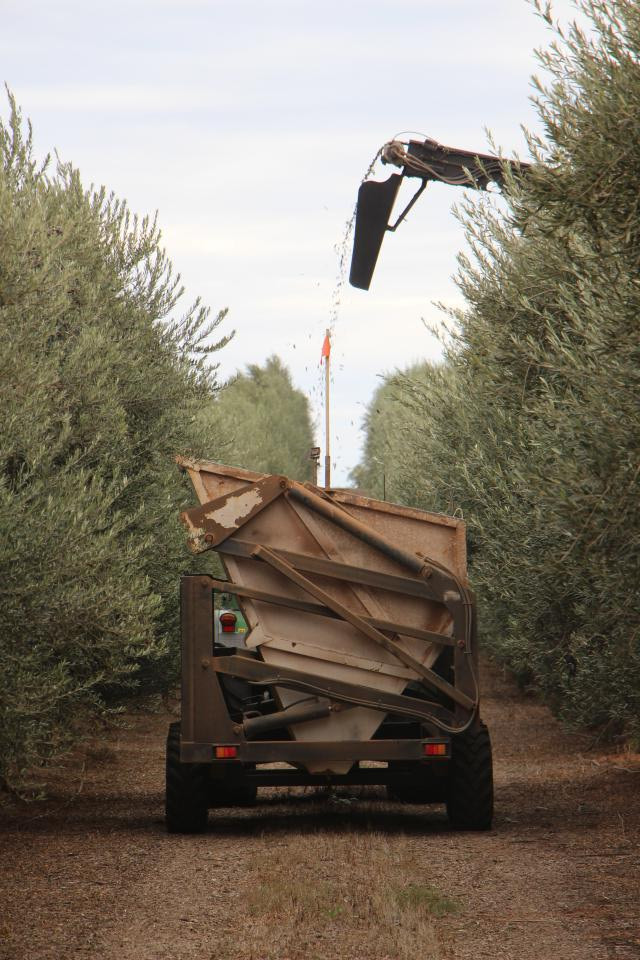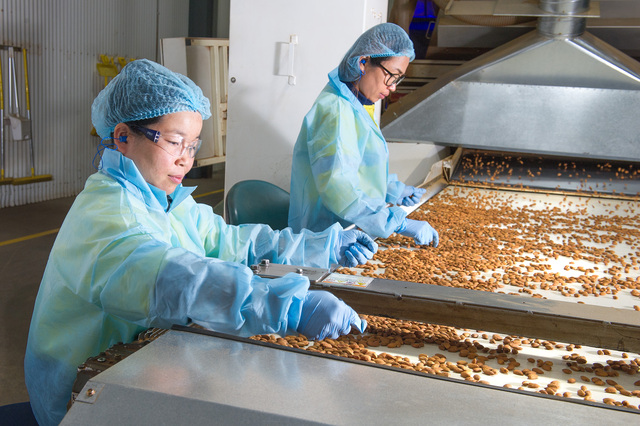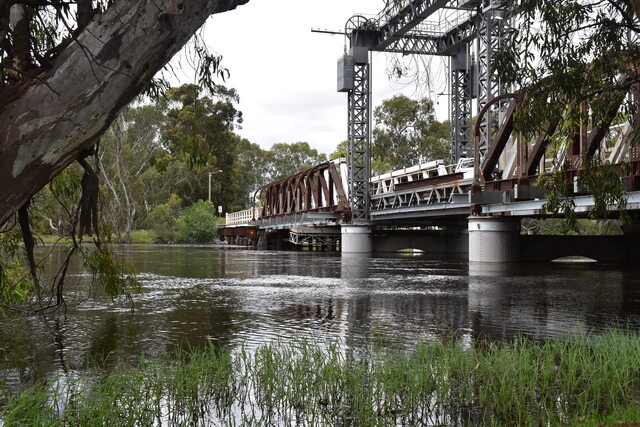Yes, we have no bananas.
Well, not since a few months ago anyway – that’s when Nutrano Produce Group made a large-scale fundamental shift in its business from banana trader to focus on the company’s core business and to have control over its grow-pack-market integration.
Today, the company has a significant Sunraysia base at Red Cliffs, where it produces as many as 35,000 bins of citrus – especially Delite mandarins – a season.
In shopping parlance that equates to more than 12 million kilograms. Across the group, Nutrano picks, pack, and ships 15 million kilograms of its own citrus each year; on its way to providing every Australian man, woman, and child with a kilogram of sweetness.
But the domestic market is just the beginning for Nutrano. It currently packs and ships an additional 15 million kilograms from other producers, including tropical fruit and, most recently, blueberries in its repertoire. Australian fruit and berry producers contribute to markets in 52 countries (with Nutrano currently selling to around half of those countries).
Nutrano’s executive general manager, farming operations, Tania Chapman, is at the helm of growing operations and her CV explains why she was the perfect fit for the position.
She received a prestigious Nuffield Scholarship in 2014, applying what she saw as a lack of control over costs and government policies and how they could be revamped to help boost the competitiveness of Australia’s citrus industry.
Tania and her family owned and operated a 140ha citrus property south of Mildura, producing Navel oranges predominantly for export and Valencia oranges for the export, domestic and juice markets.
She says her study focused on Australia’s key export competitors, to determine what research and development they were adopting in the citrus industry to remain competitive.
Having a financial and accounting background, not a farming one, Tania and husband Adrian first bought the property in 2004 and soon realised the harsh reality of farming and the limited control over costs and returns.
Tania says her scholarship provided an ideal opportunity to address some of these challenges by learning from industry’s export competitors and colleagues to identify best practice in citrus management and to implement these measures back home.
“My study tour took me around the world to Japan, Chile, the US, Spain, Hong Kong and China, learning from some of the oldest citrus growing regions in the world and providing a firsthand insight into some of the opportunities, but also the challenges, they face,” Tania says.
”It also equipped me with new knowledge and research ideas for targeted export markets, and how Australia’s export competitors are evolving to meet consumer trends.
“In Australia, we know how to grow quality fruit and transport it in prime condition, but ensuring we take into account market nuances and needs of our export markets so that we can receive top returns, is absolutely critical.
”Change is the only constant. Markets, both domestic and export, are consumer driven and, as such, dictate the type of varieties grown in the most suitable production regions. China holds huge opportunities for Australia’s citrus industry, but this shouldn’t be considered as just supplying to one country given some of their second tier cities have greater populations than the whole of Australia. Further to this, markets like Korea and Thailand still have a strong preference for Australian oranges, even as global demand increases for easy peeler mandarins, so we need to look at a range of varieties to cultivate.”
But in order to keep this favourable trade status, Tania says Australia must differentiate from its competitors and leverage its strengths by promoting a reputation built on the principles of premium quality, green, clean, and safe.
”We, as an industry, cannot afford to rest on our laurels. There is mounting competition from key southern hemisphere markets such as Chile, Peru, and South Africa, who have much lower costs of production than we have here in Australia,” she says.
“For example, labour costs between Chile and Australia are significant, with Chile paying $A2.50 an hour compared to Australia, where costs are now closer to $30 per hour (thanks to all the minimum wage increases) but the price returned to the grower has not had the same quantum leaps.”
So, with that in mind, staying competitive means producing and, importantly, promoting a final product that is safe, clean, green and of the highest quality that families from around the world can enjoy.
“Pricing varies from day to day in the export markets but currently in China for instance there is a difference around 80c/kg between South Africa and Australia,” Tania says.
And that’s if Nutrano, or any other exporters, can actually get their product there.
Tania says like every other orchard-based enterprise, getting pickers is proving a major challenge, making it difficult to at times even meet daily quotas – with the longer ripe fruit remains on the tree the more its drops its quality.
“We can get pickers here, mainly islanders from places such as Vanuatu, Tonga and the Solomons but right now that can create a second wave of mental wellbeing issues,” Tania says.
“Getting them here is a lot easier than getting them home, with the island’s understandably reluctant to have citizens return from Australia because of our exceptionally high Covid rates.”
Then, even if picked, there are the ships required to move bulk containers around the world. None of that helped by the fighting in Ukraine and the world’s own Covid crises.
There aren’t as many ships available and the price for containers on some routes have jumped from around $3500 to as much as $20,000, playing havoc with the economics of export.
At the other end, unfortunately, the domestic market is not our answer, if we flood that by targeting the easiest access market we have, all we will achieve is downward pressure on everyone, driving down prices, and that’s no good for anyone, Tania explains.
“Add to that the soaring costs of fuel, freight and fertiliser and suddenly we need a major review of the numbers impacting the bottom line,” she says.
The Nuffield Scholarship has proven the launching pad of Tania’s rise in the Australian citrus industry and her current role with Nutrano.
But it hasn’t always been smooth sailing.
On New Year’s Day in 2021, Nutrano’s main farm in Red Cliffs was hit by a freak hailstorm, which smashed fruit-laden trees, a potentially bumper crop destroyed.
Tania says in the end, they had to write off about 5000 tonnes of product.
And that, she recalls, would not prove to be the worst outcome of the New Year for Nutrano.
Instead of the devastation of the mandarins, it would be the devastation on the faces of the team responsible for the mandarins that most hit home.
“As most of the staff involved with growing and caring for the trees lived in the area, they were forced to confront the damage every day, and it really started to grind some of them down,” Tania explains.
“Some of the team were as damaged as the trees, trees they had worked long and hard for almost 10 years to help make the crop a success story for the business.
“People not directly involved would not, could not, understand the high and lows you face in farming, so when some of them started sniping things such as ‘what does it matter to corporates?’
“Believe me, it really matters, and it really mattered in that January.”
After taking steps to provide support to staff seeking it, Tania says Nutrano “soon realised we didn’t just want to limit this support to our staff, because of its very nature farming is a high-risk way to make a living”.
“While we knew we would come out the other side, farmers and farm workers have to deal with a lot, much of it beyond their control, and the hailstorm was a classic example of what can go so suddenly and so destructively wrong,” she says.
“The work we were then doing to help any staff who might need it, was then converted almost as a natural extension to a wider community – we were asking ourselves how can we reach people with what we do, and how can we help even more people in regional and rural Victoria?”
With 400 permanent staff nationally, and 100 of those in Sunraysia, the answer was relatively easy – find a group doing its very best to support so many people, and the partnership with the Black Dog Institute through #PlateForAMate was born.
#PlateForAMate is a community awareness campaign now in its third year, raising funds for the Black Dog Institute. This year the focus is on supporting the mental health of our farmers, and people in regional areas devastated by recent natural disasters.
The Institute’s work has shown 68 per cent of Australians in rural and regional areas have experienced depression and anxiety during the past two years, with 26 per cent of those patients having to wait as long as six weeks to access support.
“Those are massive wellbeing numbers, and that’s not good enough,” Tania says.
“So we are looking at opportunities, ones in which we can help reach people – such as the 24-hour support phone service we now provide staff and their families. Now, through this campaign we will be helping The Black Dog Institute reach even more people too,” she says.
Tania says with its hugely successful Delite Mandarins brand celebrating its first decade, the company had been casting around for a worthwhile community project with which to share the celebration and sees #PlateForAMate and The Black Dog Institute as a “very good match”.
All the information on the #PlateForAMate campaign and details of how to donate to The Black Dog Institute can be found at www.plateforamate.com

